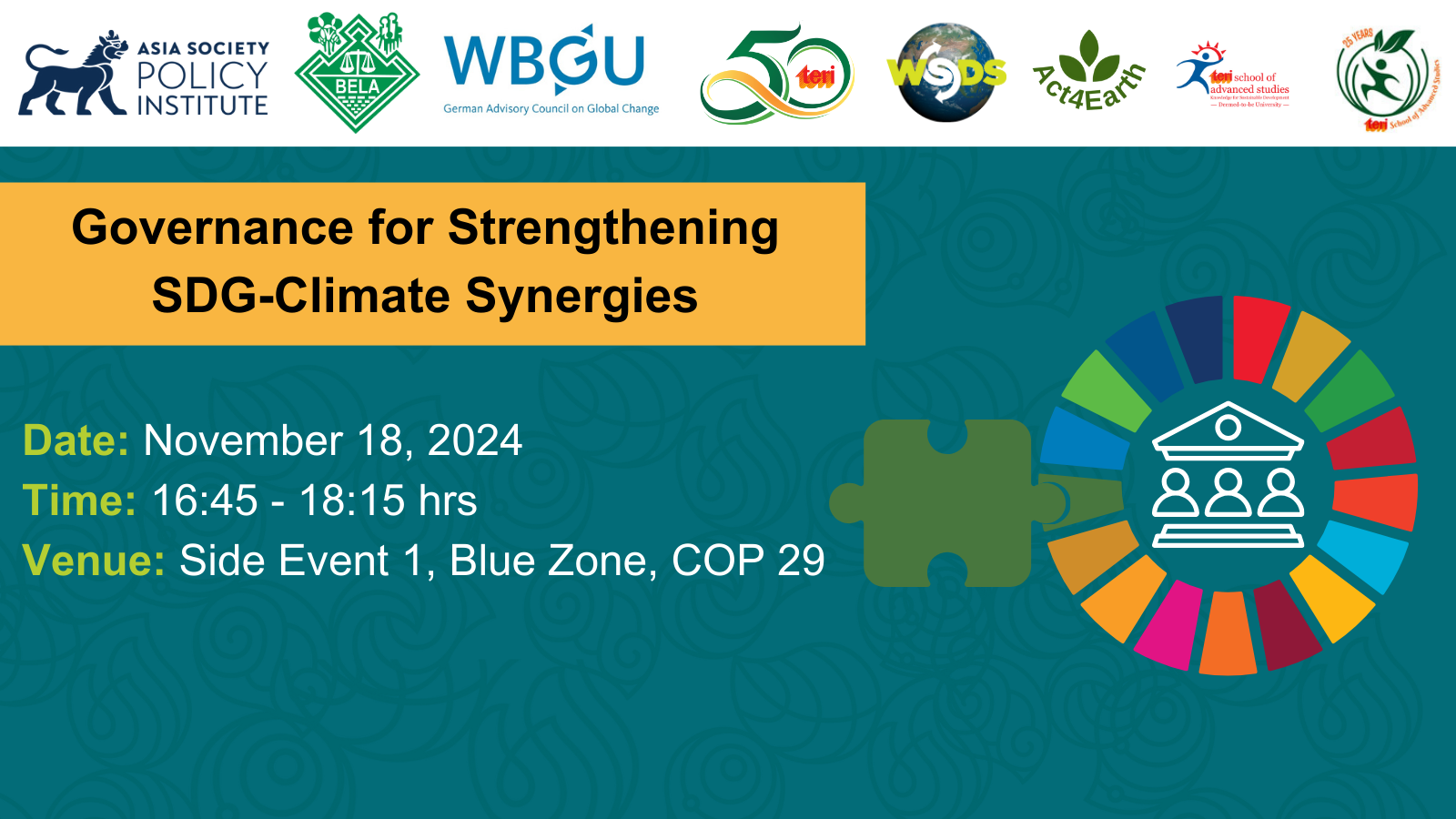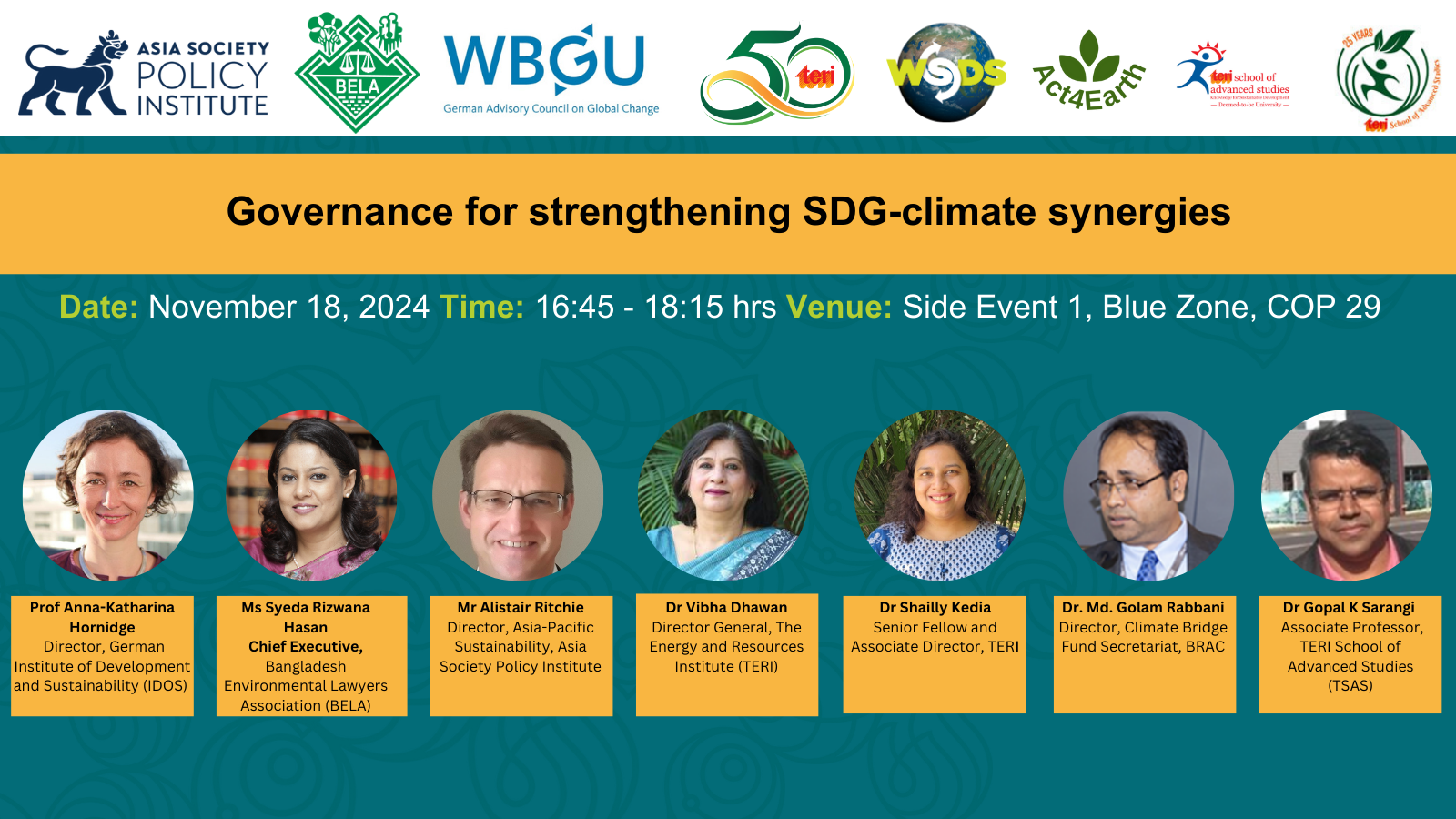COP 29 Side Event: Governance for Strengthening SDG-Climate Synergies

In the face of accelerating climate change and pressing global challenges, fragmented governance systems hindered the integration of the Sustainable Development Goals (SDGs) and climate action. Despite shared objectives, governance structures, including multilateral mechanisms, remained disconnected. This fragmentation persisted even after the adoption of transformative global frameworks like the Paris Agreement and the 2030 Agenda for Sustainable Development, leaving only 13.6% of SDG targets on track.
The interconnected nature of climate action and the SDGs demonstrated significant potential for enhancing global economic output and resilience. The First Global Report on Climate and SDG Synergy revealed that mainstreaming climate adaptation and focusing on co-benefits could help achieve nearly 70% of the SDG targets by 2030. However, governance silos often obstructed progress, necessitating adaptive, inclusive, and cross-sectoral approaches.
The session explored practical approaches to integrating governance frameworks for sustainable development and climate action. Discussions centered on examples of multilateral processes, responses to climate-related water emergencies, and financing solutions requiring adaptive and effective governance at all levels.
Key Insights
- Integrated Governance: Strong institutional mechanisms were identified as crucial for fostering coherence between SDG and climate agendas. Inclusivity and transparency were emphasized as foundational principles. Water Governance: Addressing climate-related water emergencies required strengthened global water governance systems that incorporated climate resilience into sustainable management policies.
- Finance and Carbon Markets: Leveraging mechanisms such as carbon markets, emissions trading systems (ETS), and long-term financing aligned SDG objectives with climate action, enabling sustainable outcomes.
- Nature-Based Solutions: A shift toward climate justice and nature-compatible approaches was considered essential to replace ultra-capitalist models, ensuring equitable and sustainable development.
The session highlighted adaptive governance as a critical enabler for bridging the gaps between fragmented systems, fostering collaboration, and accelerating progress across interconnected agendas. It underscored the urgent need for cohesive, cross-sectoral approaches to address the complexities of global challenges effectively.

